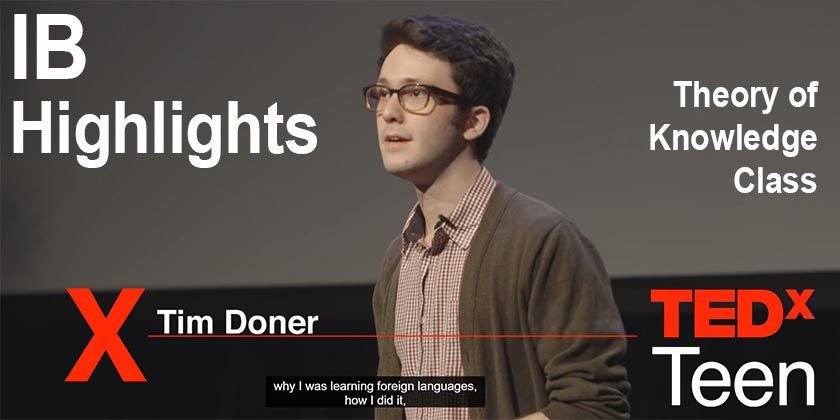
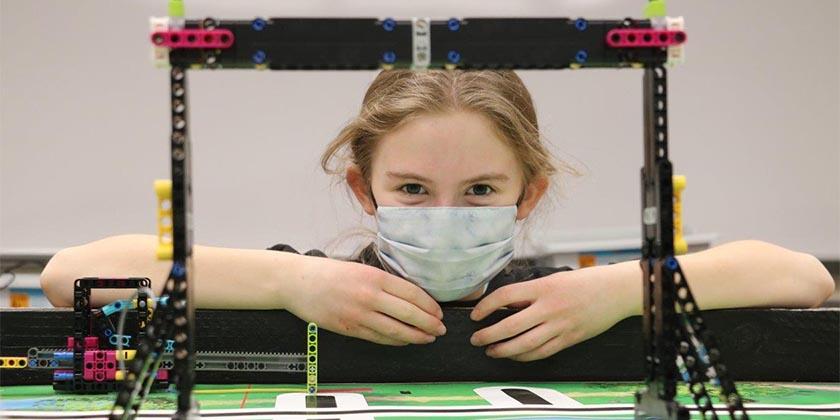
The SGS FIRST Lego League team builds Lego robots and structures as part of a competition with other schools. See a Photo Gallery of the team of 6th graders, who have made some impressive creations!
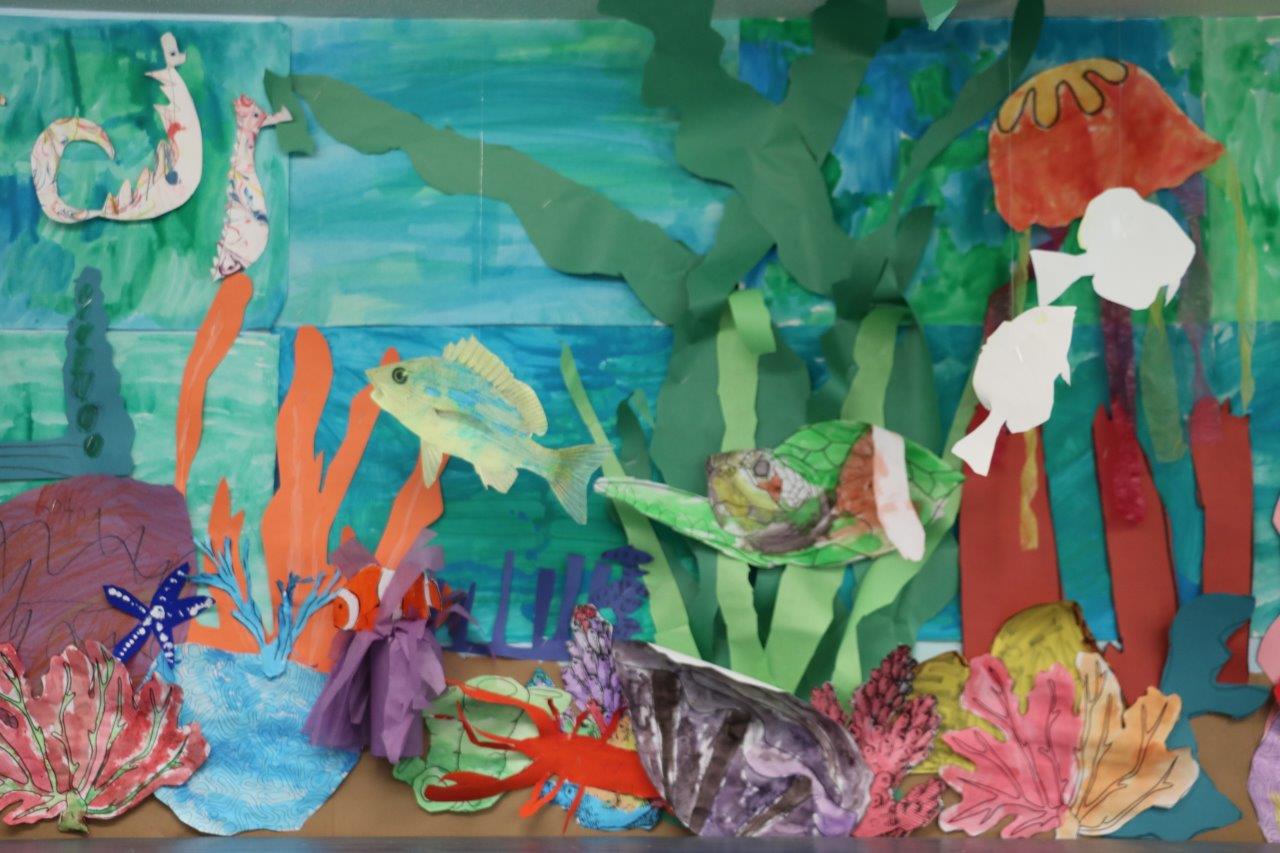
The Kindergarten class created a coral reef along one wall of their classroom and learned all about the creatures that inhabit a reef. See a 1-Minute Video of them naming different creatures of the reef, as well as photo galleries of the Reef and Decorated Books about the fish in a reef and of Hawaiian Day when they brought their stuffed animals and played Coral Reef Bingo!
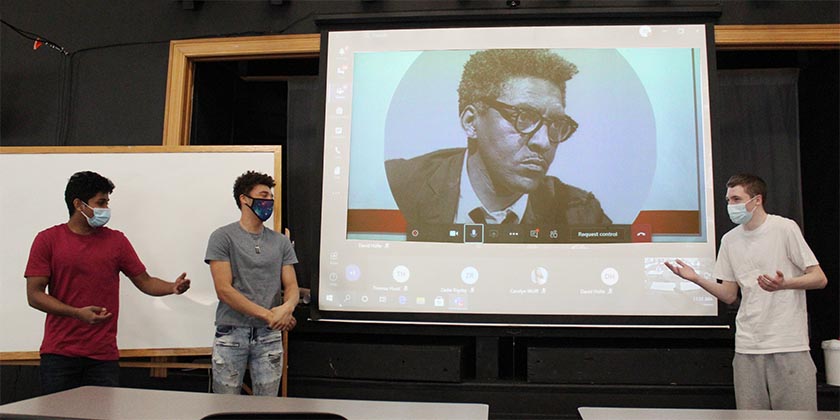
Upper School History students researched lesser known African American figures from the 20th Century and made short presentations on them to SGS students and staff for Black History Month. Watch presentations on Feb. 25 by Alli Dixon on Zora Neale Hurston, by Zadie Rigsby on Angela Davis, and by Reagan Ivey on Stokely Carmichael, as well as presentations on Feb. 26 by Carol Wolff on Marsha P. Johnson and by Chaitanya Nalluri, Paul Darnall and Kyley Doughty on Bayard Rustin. You can also view PDFs of each presentation's slides for Hurston, Davis, Carmichael, Johnson, and Rustin.
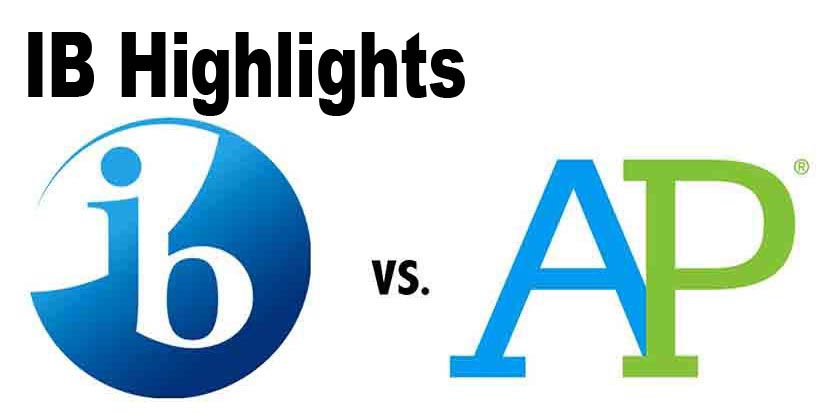
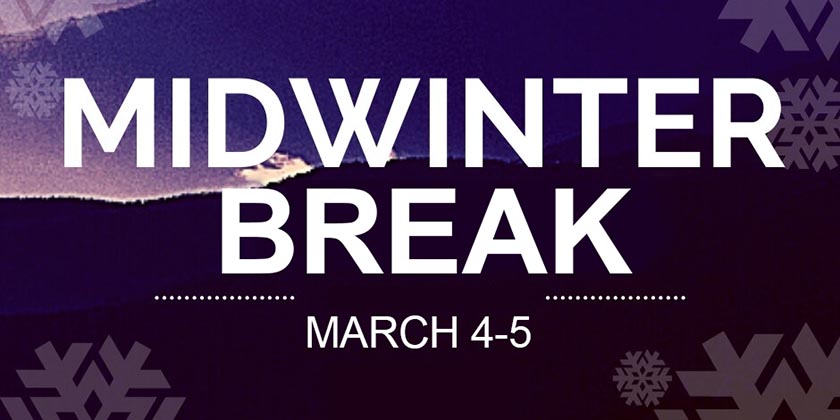
Saint George's School will be closed on Thursday, March 4 and Friday, March 5 for Midwinter Break. Enjoy the early spring-like weather!
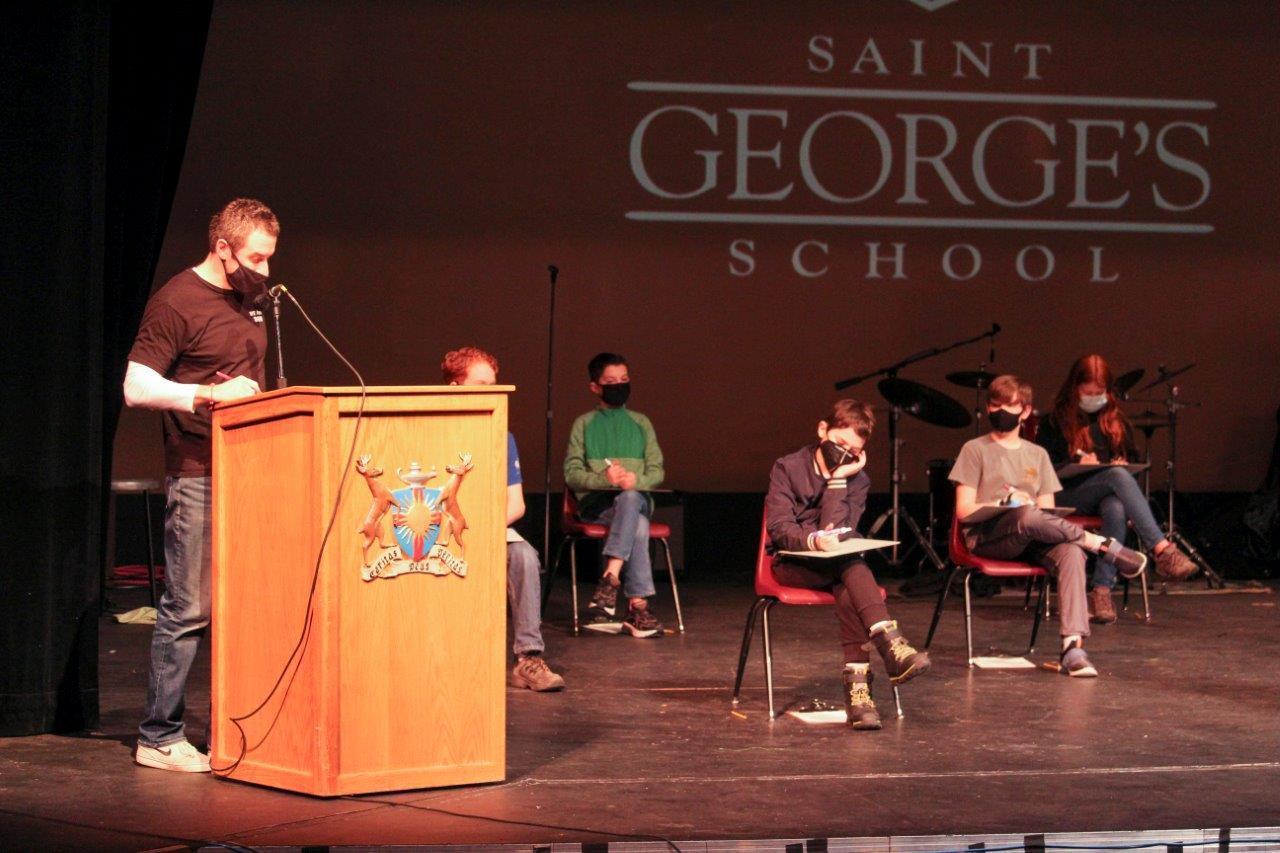
Ten Saint George's Middle School students competed in the annual National Geographic Geography Bee on Feb. 17 in Founders Theater. See a Photo Gallery from the event and watch the full 35-Minute Video to see how well you would do on these tough geography questions. Congratulations to 7th grader Matthew Longstreth, who knew the final answer to "Which country on the Atlantic Ocean is just south of Lake Chad and is bordered by Nigeria to the northwest?"
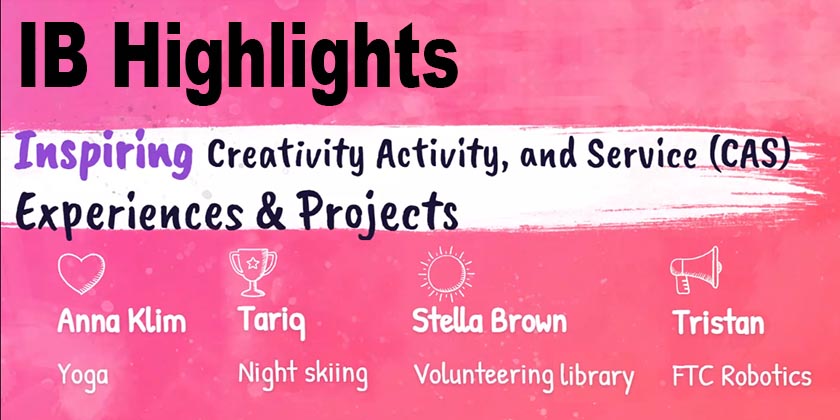
SGS students have used the International Baccalaureate Diploma Programme to explore creativity, activity and service experiences at school, at home and outside.
CAS Experience Highlights: CAS experiences for all of our Upper School students (in the US and in China) include replacing the shocks on a car, meal prep and cooking, helping in the library, FIRST Tech Challenge robotics, yoga, and skiing.
CAS Project Highlight: Senior Clark Chen has initiated the founding of an online English language program for primary students in China. He hopes to develop his skills to initiate projects with collaborations and to enhance his communication skills with younger kids and their parents.
EE Highlight: The junior class of full diploma candidates has begun meeting in B block to start their Extended Essay process. They are learning exactly what the EE is and are beginning to choose their subjects and supervisors. Over the next couple of weeks, they will work on narrowing research questions, finding resources, and developing the methodology of the EEs.
IB Question of the Week: How is the IB recognized in different countries?
There are IB World Schools in 156 countries throughout the world, and students send exam results to higher education institutions in nearly 90 countries annually. Given the wide diversity of local education systems, it can be difficult to understand how the IB is recognized in various parts of the world. Learn how different countries Recognize IB Results.
IB Overview: The Diploma Programme (DP) curriculum for grades 11-12 is made up of six subject groups and the DP core, comprising Theory of Knowledge (TOK), Creativity, Activity, Service (CAS) and the Extended Essay (EE). Please refer to our IB webpage and to the IB Resources page in PowerSchool Learning for detailed IB information.
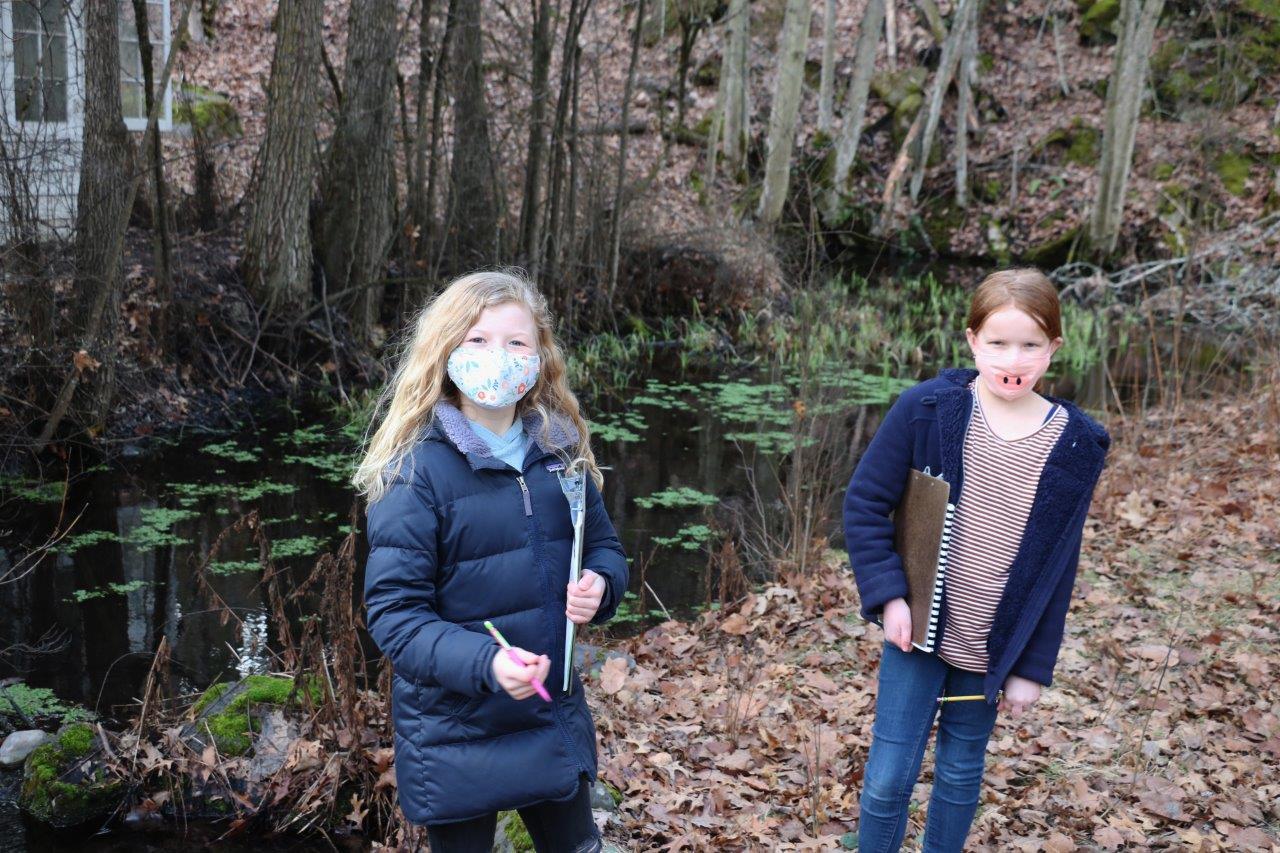
The 4th graders split into teams to check the quality of the spring at the base of the hillside and the Little Spokane River by Graduation Bridge on Feb. 8. They regularly measure water temperature, PH balance, and observe any creatures for signs of the water's health. See a Photo Gallery of their investigations!
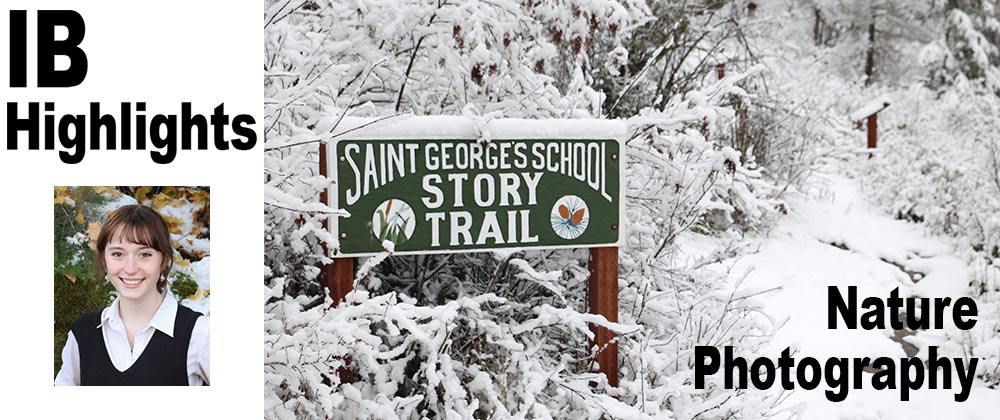
Latest News | Page 2 | Page 3 | Page 4 | Page 5 | Page 6 | Page 7 | Page 8 | Page 9 | Page 10 | Page 11 | Page 12 | Page 13 | Page 14 | Page 15 | Page 16 | Page 17 | Page 18 | Page 19 | Page 20 | Page 21 | Page 22 | Page 23 | Page 24 | Page 25 | Page 26 | Page 27 | Page 28 | Page 29 | Page 30 | Page 31 | Page 32 | Page 33 | Page 34 | Page 35 | Page 36 | Page 37 | Page 38 | Page 39 | Page 40 | Page 41 | Page 42 | Page 43 | Page 44 | Page 45 | Page 46 | Page 47 | Page 48 | Page 49 | Page 50 | Page 51 | Page 52 | Page 53 | Page 54 | Page 55 | Page 56 | Page 57 | Page 58